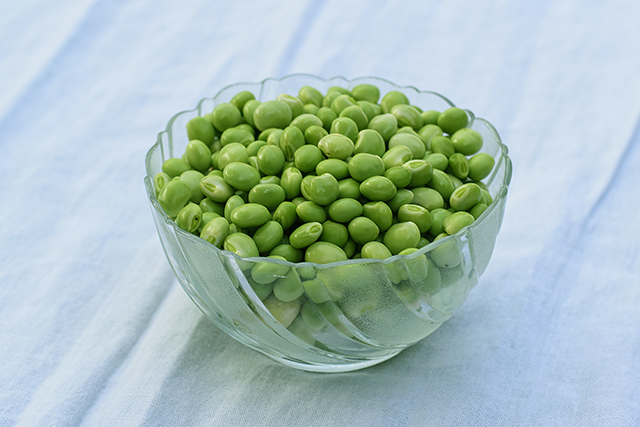Pigeon pea is packed with phytochemicals that can protect against multiple diseases
09/10/2019 / By Evangelyn Rodriguez

Pigeon pea (Cajanus cajan) is a plant known for its many medicinal properties. It is used in traditional medicine in China and Brazil. Numerous studies have proven that pigeon pea possesses antioxidant, antidiabetic, antimicrobial, and DNA-protective properties. However, not much is known about its mechanisms of action. In a recent study published in the journal Food Science and Human Wellness, researchers from Kerala Agricultural University in India looked into the activities of pigeon pea’s bioactive components against different human diseases. These included rheumatoid arthritis, breast cancer, Type 2 diabetes, malaria, measles, and sickle cell disease. The researchers identified a total of 26 promising drug candidates present in extracts obtained from different parts of the pigeon pea plant.
The health benefits of pigeon pea
Pigeon peas belong to the legume family. People know them more as pea-like seeds with an unremarkable taste, which is why they are often mixed with other grains, maize, or sorghum. Pigeon peas can also be crushed into flour and used to make bread. Despite their small size and bland taste, pigeon peas are very nutritious. They are rich sources of proteins, minerals (iron, manganese, potassium, phosphorus), vitamins (vitamin C and B-complex), organic compounds, dietary fiber, and antioxidants.
Pigeon peas have a surprisingly diverse list of health benefits. These include:
- Supports growth and body development
- Boosts energy
- Helps control weight
- Improves digestion
- Prevents anemia
- Maintains heart health
- Strengthens the immune system
- Relieves inflammation
- Regulates blood pressure
In many countries, different parts of the pigeon pea plant are used to make traditional medicine. For instance, its roots and leaves are effective in:
- Addressing ailments related to the chest and lungs
- Healing wounds, sores, and earaches
- Stopping bleeding
- Treating diabetes and chlorosis
- Relieving diarrhea, cough (expectorant), and abdominal pains
- Eliminating parasitic worms (anthelmintic)
- Helping with jaundice and bronchitis
- Getting rid of herpes and itches
- Reducing swelling and throat inflammation
- Inducing calm or sleep (sedative)
Pigeon peas can also be consumed in various ways. They are part of the ingredients used to make food products like tempeh and tofu. Pigeon peas can also be added to soups and other dishes, used in sauces (dried seeds), roasted, or mixed with white rice. (Related: Add to your food security by growing highly-versatile pigeon peas.)
Pigeon pea seeds are good sources of therapeutic compounds
For their study, the researchers investigated the potency of pigeon pea against different human diseases. They hypothesized that various parts of the plant contain phytochemicals that can interact with the active sites of proteins specific to rheumatoid arthritis, Type 2 diabetes, breast cancer, malaria, measles, and sickle cell disease.
The researchers used extracts obtained from pigeon pea leaves, stems, and seeds for their experiments. They identified 242 ligands – molecules that attach to another (often larger) molecule – using gas chromatography-mass spectrometry (GC-MS). They drew the three-dimensional structures of 47 compounds using ChemSketch and retrieved the structures of the other compounds from PubChem.
The researchers confirmed that the mechanism of action of pigeon pea involves protein-ligand docking – that is, the ligands of different phytochemicals in pigeon pea dock at the active sites of target proteins for each disease.
They identified 13 compounds that interacted with the target protein for rheumatoid arthritis, iNOSox; 10 compounds that interacted with the Plk1 protein (breast cancer); 18 compounds that interacted with DPP-IV (Type 2 diabetes); three compounds that interacted with plasmepsin II (malaria); one compound that interacted with ICAM-1 (measles); and two compounds that interacted with oxyHb (sickle cell disease).
After further examination of these compounds, they identified a total of 26 promising drug candidates for the human diseases they tested pigeon pea against.
Based on these results, the researchers concluded that pigeon pea – in particular, its seeds – is an invaluable source of therapeutic compounds that can be used in the treatment of various human diseases.
Sources include:
Submit a correction >>
Tagged Under:
alternative medicine, anti-diabetes, anti-inflammatory, anticancer, antioxidants, breast cancer, Cajanus cajan, cancer cures, cancer treatment, chronic inflammatory diseases, clean food, diabetes cure, dietary fiber, disease treatments, food cures, food is medicine, functional food, inflammation, ligands, Malaria, measles, medicinal plants, natural cures, natural medicine, nutrients, phytochemicals, pigeon pea, prevention, research, rheumatoid arthritis, sickle cell disease, slender, therapeutic compounds, Type 2 Diabetes
This article may contain statements that reflect the opinion of the author






















